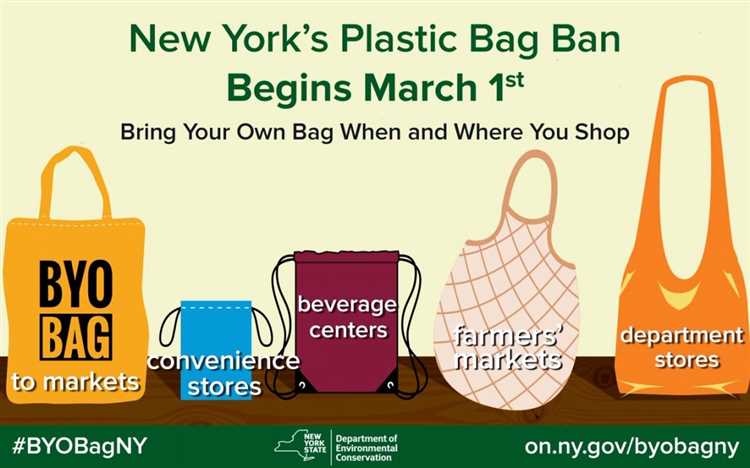Plastic bag bans have become a popular solution to the environmental problems caused by single-use plastic bags. These bans aim to reduce the consumption and production of plastic bags and encourage the use of reusable alternatives. While their intentions are noble, the environmental impact of plastic bag bans is a complex and controversial topic.
Advocates of plastic bag bans argue that they help reduce pollution and protect wildlife. Plastic bags, especially those made from non-biodegradable materials like polyethylene, take hundreds of years to decompose. This means that once discarded, they can clog waterways, contaminate soil, and harm animals that mistakenly ingest or become entangled in them. By banning plastic bags, advocates believe that the volume of plastic waste in landfills and natural environments can be significantly reduced, leading to a cleaner and safer planet.
Opponents of plastic bag bans, however, raise concerns about the unintended consequences of such measures. They argue that the alternative bags often used to replace plastic bags, such as paper or cotton, have their own environmental drawbacks. Paper bags require more energy and resources to produce, and they contribute to deforestation. Cotton bags, on the other hand, require large amounts of water and land to grow and may have a higher carbon footprint. Critics also claim that the ban on plastic bags can lead to an increased use of plastic bin liners and thicker, reusable plastic bags, which can have an even greater environmental impact than traditional plastic bags.
In conclusion, the environmental impact of plastic bag bans is a topic that warrants careful consideration and analysis. While these bans aim to reduce pollution and protect wildlife, they may have unintended consequences that must be taken into account. To ensure the most effective and sustainable solution, a comprehensive approach that considers all aspects of the problem and explores alternative solutions should be pursued.
- The Negative Effects of Plastic Bag Bans
- Increased Use of Paper Bags and its Impact on Deforestation
- The Contribution of Plastic Bag Bans to Climate Change
- The Role of Plastic Bag Bans in Reducing Marine Pollution
- 1. Reduction in Plastic Waste
- 2. Encouraging the Use of Reusable Alternatives
- 3. Changing Consumer Behavior
- Q&A:
- What is a plastic bag ban?
- Why do some cities implement plastic bag bans?
- How does a plastic bag ban affect the environment?
- Do plastic bag bans have any negative consequences?
- Are plastic bag bans effective in reducing plastic waste?
The Negative Effects of Plastic Bag Bans
While plastic bag bans have gained popularity in many areas as a solution to environmental issues, they are not without their drawbacks. Here are some of the negative effects that can result from plastic bag bans:
- Inconvenience: One of the main drawbacks of plastic bag bans is the inconvenience they can cause for consumers. Without plastic bags, shoppers are often forced to purchase reusable bags or bring their own, which they may forget to do. This can result in added stress and hassle during shopping trips.
- Misuse of Alternatives: In some cases, plastic bag bans have led to an increase in the use of alternative options such as paper bags or thicker reusable bags. While these alternatives may be considered more eco-friendly, they also have their own environmental impacts. Paper bags, for example, require a significant amount of energy and resources to produce, and reusable bags made from materials like cotton can have a large carbon footprint.
- Hygiene Concerns: Plastic bags are often used for various purposes beyond carrying groceries, such as disposing of garbage or storing wet or dirty items. Without access to plastic bags, individuals may face hygiene concerns or difficulties in managing waste properly.
- Unintended Consequences: Plastic bag bans can have unintended consequences that may offset their environmental benefits. For instance, some studies have shown that after plastic bag bans were implemented, the sales of other plastic products, such as trash bags or plastic pouches, increased. This suggests that plastic bag bans may simply shift the problem rather than solving it.
- Impact on Businesses: Plastic bag bans can also have negative impacts on businesses, especially small retailers. These bans often require businesses to find alternatives, such as paper or reusable bags, which can be more expensive and cut into their profit margins. This additional cost burden may be particularly challenging for small businesses to absorb.
While plastic bag bans may seem like a straightforward solution to reducing plastic waste, it is important to consider these negative effects in order to fully evaluate their overall impact on the environment and society.
Increased Use of Paper Bags and its Impact on Deforestation
The implementation of plastic bag bans has led to an increased use of paper bags as an alternative. While paper bags are often perceived as more environmentally friendly, their production and disposal also have significant consequences on our planet.
One of the main concerns regarding the increased use of paper bags is its impact on deforestation. The production of paper bags requires a large amount of trees, which are cut down to create pulp for the manufacturing process. Deforestation not only destroys habitats for countless species but also contributes to climate change as trees store carbon dioxide.
Furthermore, the process of manufacturing paper bags involves significant amounts of energy and water consumption. This further exacerbates environmental issues and contributes to air and water pollution. The chemicals used in the paper production process can also have harmful effects on both human health and ecosystems.
Moreover, the disposal of paper bags is also problematic. Many paper bags end up in landfills, where they take up valuable space and contribute to greenhouse gas emissions as they slowly decompose. While paper bags can be recycled, the recycling process itself requires energy and resources.
Therefore, it is crucial to consider the environmental impact of the increased use of paper bags as an alternative to plastic bags. Sustainable alternatives such as reusable bags or biodegradable options should be explored to minimize the negative effects on deforestation and other environmental concerns.
The Contribution of Plastic Bag Bans to Climate Change

Plastic bag bans have gained traction in recent years as a means to reduce plastic waste and protect the environment. However, the impact of these bans on climate change is often overlooked.
One of the main ways plastic bag bans contribute to climate change is through the production and disposal of alternative bags. Many jurisdictions that implement bag bans encourage the use of reusable bags made from materials such as cotton or polyester. While these bags may have a longer lifespan than plastic bags, they also have a significantly higher carbon footprint.
The production of cotton bags, for example, requires large amounts of water, energy, and chemicals. The cultivation of cotton, especially when done on a large scale, can contribute to deforestation and water pollution. Additionally, the manufacturing process of polyester bags involves the extraction and refinement of petroleum, a fossil fuel that releases greenhouse gas emissions when burned.
Another factor to consider is the impact of plastic bag bans on consumer behavior. Studies have shown that when plastic bag bans are implemented, consumers often switch to other types of single-use bags, such as paper bags. However, the production of paper bags also has environmental consequences. It requires the harvesting of trees, which contributes to deforestation, and significant amounts of energy and water.
Furthermore, plastic bag bans can lead to unintended consequences that exacerbate climate change. For instance, without access to plastic bags, people may be more likely to purchase more packaged goods, which are often wrapped in materials that have higher carbon footprints, such as plastic films and laminates.
In conclusion, while plastic bag bans aim to reduce plastic waste, their contribution to climate change should not be overlooked. The production and disposal of alternative bags, along with changes in consumer behavior, can have negative environmental consequences. As we seek to combat climate change, it is important to carefully consider the full impact of plastic bag bans and explore alternative solutions that minimize their carbon footprint.
The Role of Plastic Bag Bans in Reducing Marine Pollution

Plastic bag bans have been implemented in numerous cities and countries around the world as a means to reduce marine pollution. The use of plastic bags has been a major contributor to the degradation of marine ecosystems and affects a wide range of marine species.
1. Reduction in Plastic Waste
By banning the use of plastic bags, there is a significant reduction in the amount of plastic waste that ends up in the ocean. Plastic bags are lightweight and easily carried by wind and water, leading to their widespread distribution in marine environments. These bags can be mistaken for food by marine animals, resulting in ingestion and entanglement. Additionally, plastic bags do not biodegrade and can persist in the environment for hundreds of years.
2. Encouraging the Use of Reusable Alternatives
Plastic bag bans motivate individuals to use reusable alternatives such as cloth bags, paper bags, or durable plastic bags. These alternatives are more environmentally friendly as they can be used multiple times before being discarded. By encouraging the use of reusable bags, fewer bags are needed overall, reducing the demand for plastic bags and ultimately decreasing marine pollution.
3. Changing Consumer Behavior
Plastic bag bans also play a vital role in changing consumer behavior. By making conscious decisions to opt for reusable bags and avoiding the use of single-use plastic bags, individuals become more aware of the environmental impact of their choices. This shift in mindset can extend to other areas of their lives, leading to the adoption of more sustainable practices and a reduced overall usage of plastic.
In conclusion, the implementation of plastic bag bans has proven to be a crucial step in the reduction of marine pollution. These bans lead to a significant decrease in plastic waste, encourage the use of reusable alternatives, and promote a shift in consumer behavior towards more sustainable choices. By adopting and enforcing plastic bag bans, we can protect the health of our oceans and safeguard marine ecosystems for future generations.
Q&A:
What is a plastic bag ban?
A plastic bag ban is a policy implemented by a government or organization that prohibits or restricts the use of plastic bags.
Why do some cities implement plastic bag bans?
Some cities implement plastic bag bans to reduce the negative environmental impacts of plastic bags, such as litter and pollution, and to promote the use of more sustainable alternatives.
How does a plastic bag ban affect the environment?
A plastic bag ban can have positive environmental impacts by reducing plastic waste, minimizing pollution, and protecting wildlife. It encourages the use of reusable bags, which are more sustainable than single-use plastic bags.
Do plastic bag bans have any negative consequences?
Plastic bag bans can have some negative consequences, such as an increase in the use of other types of single-use bags, potential job losses in the plastic bag manufacturing industry, and resistance from consumers who are accustomed to using plastic bags.
Are plastic bag bans effective in reducing plastic waste?
Yes, plastic bag bans have been shown to be effective in reducing plastic waste. Studies have found a decrease in plastic bag usage and litter in areas where bans have been implemented.